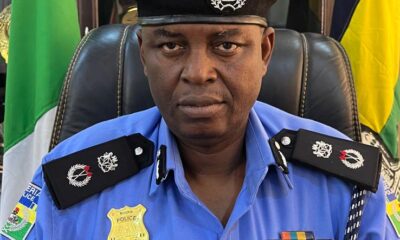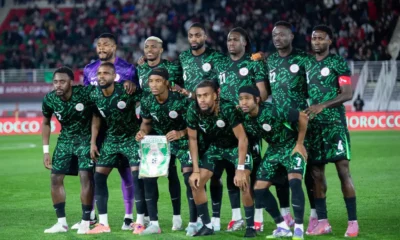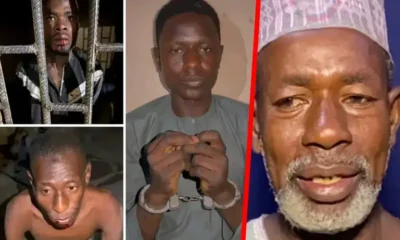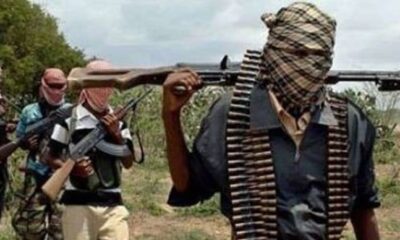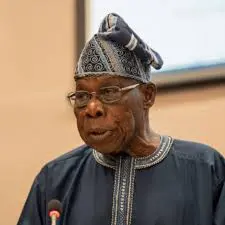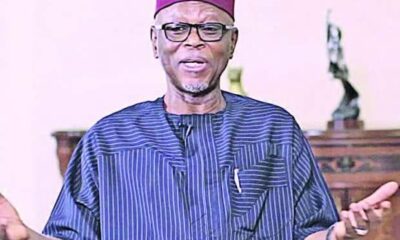News
Why security could be Tinubu’s Achilles heel in Nigeria’s 2027 elections
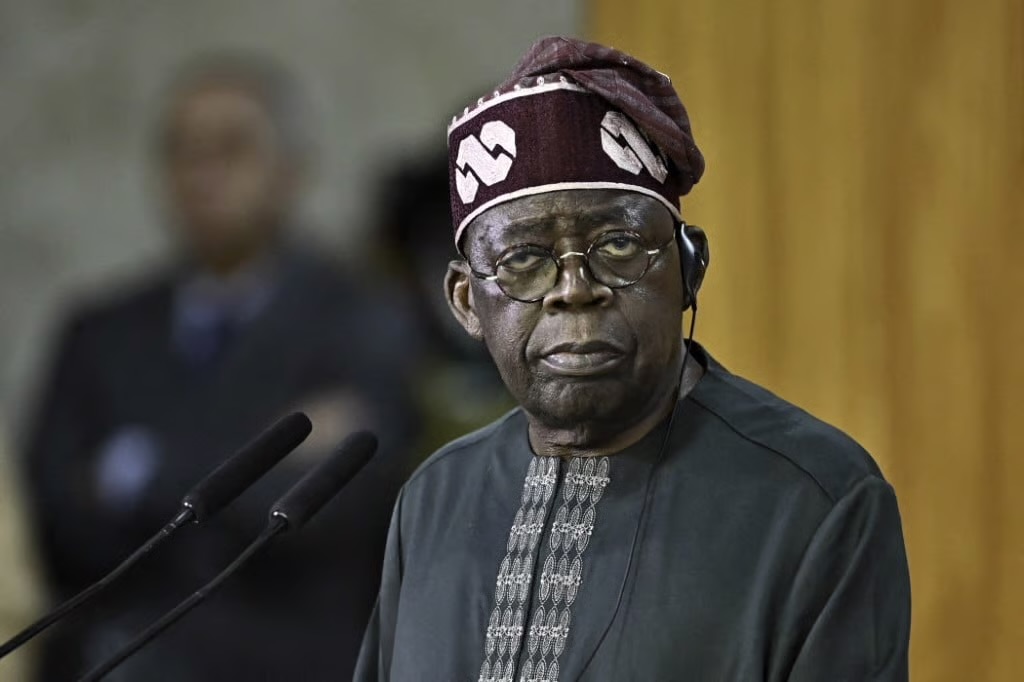
With 16 months to go before Nigeria’s next general election, President Bola Tinubu has done much of the political groundwork. He has splintered and co-opted rivals, encouraged defections and kept a firm grip on the ruling All Progressives Congress (APC). On paper, his prospects of re-election in 2027 look strong. On the ground, however, they look far less assured.
Insecurity – which Tinubu once used as a stick to beat his predecessors – has re-emerged as his central vulnerability. From jihadist attacks in the north-east to banditry and mass abductions in the north-west and north-central, the violence has shaken public confidence and drawn hostile scrutiny from abroad. For weeks, politics has taken a back seat while a rattled presidency scrambles to contain a security emergency that cuts to the core of Tinubu’s authority.
On Saturday 22 November, Tinubu acknowledged as much. “Nothing troubles me more gravely than the security crisis bedevilling Nigeria, especially northern Nigeria,” he said. It was a rare public admission from a president whose political brand rests on the promise of hard-nosed competence.
The immediate trigger was a week of shock even by Nigeria’s grim standards. Twin assaults by jihadists in Kebbi and Niger states resulted in the abduction of more than 300 schoolchildren. In Kwara, gunmen stormed a church during an evening service, killing two worshippers and kidnapping dozens more. A viral video showing Boko Haram terrorists executing a brigadier-general ricocheted around social media, deepening the sense that even the security forces are being hunted.
By the end of that week, the federal government had ordered the closure of 47 unity schools over fears of imminent attacks, with several northern states following suit. The 2025 National Festival of Arts and Culture, scheduled to take place in Enugu, was postponed.
In Borno, Boko Haram fighters murdered women returning from their farms and razed an entire community. In Kogi, only local vigilantes stood between another village and disaster – a reminder that many communities now rely as much on self-defence groups as on the state.
These incidents sit on top of a broader trend. Conflict-tracking organisations have recorded a steady rise in killings and kidnappings since 2023, with the north-west and north-central emerging as the most volatile regions. Bandit groups that began as cattle rustlers have morphed into multi-state enterprises, taxing villages, looting harvests and selling captives back to their families. Displacement in the north-west alone is estimated to have reached its highest level in several years.
The Trump factor
All this is unfolding just as the United States turns up the pressure. President Donald Trump and allies in Congress have framed the crisis as a ‘Christian genocide’, raising the prospect of sanctions or even unilateral action. Nigeria’s violence took centre stage at a recent congressional hearing; days earlier, American rapper Nicki Minaj used a UN appearance to denounce Abuja’s record.
If the president can’t solve insecurity, he should resign and let someone who can do it replace him
Tinubu aborted planned trips to South Africa and Angola for the G20 and African Union-European Union summits, opting instead for back-to-back security meetings in Abuja designed to show he remains in charge.
The government insists it is not standing still. Since taking office, Tinubu has repeatedly reshuffled the service chiefs and, in a significant shift, thrown his weight behind the creation of state police – a long-taboo reform that would move policing from the federal government’s exclusive list to a concurrent responsibility. In theory, that could tighten local intelligence and improve response times in states facing daily attacks.
Yet the recent bloodshed underlines how shallow these reforms still are. Military offensives in the north-east have produced tactical gains against Boko Haram and Islamic State West Africa Province, but large parts of Borno and Yobe remain unsafe. In the north-west and north-central, there is little sign of a coherent counter-banditry strategy beyond airstrikes, raids and ad hoc deals with local strongmen.
Within the security services, corruption and low morale remain open secrets. Procurement scandals, ‘ghost’ soldiers and allegations of officers siphoning allowances or selling fuel have long eroded operational capacity. When tragedies occur – such as botched airstrikes on civilian gatherings or raids that fail to prevent mass kidnappings – investigations are opaque and ‘internal sabotage’ by unnamed actors inside the military speaks to real anxieties but also risks becoming an all-purpose alibi.
Collusion between ‘protectors and aggressors’?
The political backlash has been swift. After footage of the Kwara church attack surfaced online, activists resurfaced a 2014 post on X in which Tinubu had demanded President Goodluck Jonathan’s resignation over insecurity.
“Why should any part of this country be under occupation? In any civilised country, Jonathan should resign,” Tinubu said in the tweet. Figures such as Omoyele Sowore, Folarin ‘Falz’ Falana and comedian Debo ‘Mr Macaroni’ Adedayo reposted the message, insisting Tinubu should now be judged by his own standard.
Clerics have joined in. “A decade later and the #BringBackOurGirls is back,” said Isa El-Buba, preacher in Plateau State. Primate Elijah Ayodele went further, arguing that citizens were “losing confidence” in the president. “If the president can’t solve insecurity, he should resign and let someone who can do it replace him,” he said.
For many Nigerians, the symmetry is striking: the same north-east and north-west communities that suffered under Jonathan and Muhammadu Buhari now see history repeating itself under a leader who promised ‘renewed hope’.
Tinubu’s allies offer a different story. They partly blame the surge in violence on Trump’s threat to send US forces ‘guns-a-blazing’ into Nigeria, arguing that extremists are seizing on the rhetoric to raise the stakes.
More broadly, APC stalwarts claim the insecurity is being engineered to undermine the government ahead of 2027. Senator Orji Uzor Kalu calls it a familiar script: as elections approach, shadowy domestic and international actors allegedly ‘pressurise the government’ by sponsoring terrorists and bandits.
…no opposition party has the capacity to coordinate violence on the current scale
Such claims have a long pedigree. Jonathan made similar allegations of political sabotage via the Boko Haram insurgency. Former chief of defence staff General Christopher Musa recently voiced the same suspicion, noting that deaths had fallen before spiking again in an election cycle.
In Lagos, the APC has even suggested that soldiers’ withdrawal shortly before a school attack in Kebbi points to collusion between ‘protectors and aggressors’. Senior lawyer Wole Olanipekun has challenged Abuja to name those “waging war against Nigeria”, saying “we know them, but we are afraid of naming them”.
So far, however, there is no public, verifiable evidence that the current wave of rural kidnappings and attacks is centrally choreographed by a political cabal. Independent research still points to a messier picture: overlapping jihadist cells, criminal gangs with their own economic logic, local collusion and a security sector hollowed out by corruption. The suspicion of elite manipulation is powerful – and not unfounded – but remains easier to invoke than to prove.
Opposition figures have seized on this gap. Babachir Lawal of the African Democratic Congress argues that if Kalu says insecurity is politically orchestrated, he is effectively admitting that the APC orchestrated the Chibok kidnappings when it was in opposition.
“There are only two parties today – the APC and the people,” he says. “The people are ready to remove them in 2027, so why would anyone kill the same people?” Lawal adds that no opposition party has the capacity to coordinate violence on the current scale.
Beyond the ‘Christian genocide’ framing
Analysts warn that both sides are playing with fire. For Tinubu, the international narrative may be as damaging as the domestic one. Trump’s ‘Christian genocide’ framing resonates with parts of the global evangelical movement and with many Nigerian Christians who feel unprotected.
Yet conflict data suggest a more complex reality. In the north-east, most victims of jihadist violence are Muslims living under or near insurgent control. In the north-west and north-central, bandit attacks often target those who refuse to pay protection money or live along strategic routes, regardless of faith.
This does not minimise the horror of church attacks or the symbolism of abducted schoolgirls. It does underscore how quickly a nuanced security crisis can be recast as a simple religious war, with dangerous consequences.
“The security crisis is often polarising,” says Beverly Ocheing of Control Risks. Candidates are likely to approach it with caution, she argues, especially where it risks inflaming religious tensions. In her view, the violence remains concentrated in specific regions and is unlikely, on its own, to derail national polls – particularly while the ruling camp holds most governorships and a majority in the legislature.
That may yet prove optimistic. Banditry and jihadist insurgency are feeding off the same conditions as Nigeria’s cost-of-living crisis: collapsing rural livelihoods, a weak state presence outside major cities and a security sector that absorbs ever larger budgets without delivering safety. Every new massacre or kidnapping chips away at Tinubu’s promise of ‘renewed hope’ and strengthens the argument that the system itself – not just the man at the top – needs a reset.
For now, Tinubu still commands a powerful party machine and faces a divided opposition. But if he cannot show Nigerians, especially in the north, that the trend lines on security and daily survival are bending in the right direction, 2027 risks becoming exactly what he fears most – a verdict not on his political skills, but on his failure to stop the killing.
(The Africa Report)
-

 News13 hours ago
News13 hours agoKaduna, police dismiss church attack, 100 worshippers’ kidnap
-

 News13 hours ago
News13 hours agoThe job scam syndicate luring Nigerians into Ukraine-Russia war
-

 Sports13 hours ago
Sports13 hours agoAfter AFCON Exploits, Super Eagles Rank Among Africa’s Top Three
-

 Metro13 hours ago
Metro13 hours agoFather of Kano murder suspect demands son’s death
-

 News12 hours ago
News12 hours agoIntersociety accuses New York Times of falsifying report, says Christian genocide data verified
-

 News13 hours ago
News13 hours agoAmnesty deal: Outrage mounts as Katsina moves to release 70 bandits
-

 Metro13 hours ago
Metro13 hours agoI’ll Never Stop Having Children – Obasanjo
-

 Politics13 hours ago
Politics13 hours agoADC, Obidient collaboration will unseat APC – Odigie-Oyegun



